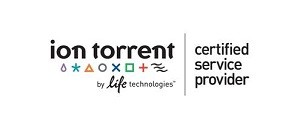Genetic diseases involving the eyes (and/or with the involvement of the eyes) are relatively common, making them the leading cause of blindness in children and adults, albeit with considerable clinical and genetic heterogeneity. A large number of retinal diseases, such as retinitis pigmentosa, cone-rod dystrophy, colorblindness, etc., lead to degeneration of the photoreceptor and it is often difficult to distinguish the specific type.
More than 90 different types of retinitis pigmentosa have been described and more than 60 genes have been implicated. Similarly, Leber congenital amaurosis (LCA) is associated with approximately 12 to 15 genes and the disease is characterized by congenital loss of vision and over time it may also manifest with severe macular degeneration and retinopathy.
ost genetic disorders of the eyes are not yet treatable and/or have no discreet therapeutic approaches, mainly due to our limited understanding of the disease mechanisms.
Ophthalmologists, particularly pediatric ophthalmologists, are often the ones who are at the forefront of patient evaluation and of the families burdened with such disorders.
Currently, there are several genes in which mutations are known to be associated with one or more ophthalmogenetic diseases. The broader categories of the disorders included in this testing panel are:
- all known types of retinitis pigmentosa,
- all the different types of cone and cone-rod dystrophies,
- all types of Leber congenital amaurosis
- all macular diseases
- retinoblastoma, and generally diseases affecting the eyes with a genetic etiology.
The mode of inheritance varies and includes all possible types: autosomal recessive, autosomal dominant and sex-linked.
Ophthalmogenetic diseases are particularly complex as to their genetic etiology, since mutations in different genes may lead to similar clinical symptoms, while different mutations in a single gene lead to different clinical manifestations. Also, the severity of the disease may differ between patients with the same mutation, due to the possible presence of other modifying genetic factors.
Finally, there are cases with digenic inheritance, where mutations in two different genes are required for disease manifestation.
In view of the nature, severity and complexity of these diseases, genomic testing for ophthalmogenetic diseases is especially valuable, if not indispensable, and is aimed at accurate and efficient identification of the underlying genetic causes:
- for the diagnosis of the specific type of disease
- for assessing disease progression
- for disease prevention in the extended family and to determine the risk for hereditary transmission
- for customized treatment options or possible therapy
Generally, the identification of the specific type of ofthalmic disease through genetic testing undoubtedly facilitates the development and introduction of new and personalized treatments.
Recently, the introduction of Next Generation Sequencing (NGS) technology has become a highly effective diagnostic strategy, through the parallel analysis of a large number of genes associated with all known genetic diseases affecting the eyes.
InterGenetics has developed and offers an NGS panel for the genomic analysis of 292 genes (see list of genes), associated with a wide spectrum of pathological clinical symptoms of the eyes, e.g. retinopathies, different types of cone or cone-rod dystrophies, Leber congenital amaurosis, macular diseases, etc., regardless of the mode of inheritance.
We perform DNA sequence analysis, via Next Generation Sequencing (NGS) on a Genome Analyzer – Ion Proton platform, of all exons and intron-exon junctions/splice sites of the 292 genes, allowing us to detect >98% of all pathogenic mutations of the genes through the use of specially developed bioinformatics tools, thus providing in a single step an increased clinical sensitivity and performance compared to single gene testing.
Where possible and/or necessary, we carry out additional MLPA analysis in order to detect deletions/duplications of the genes (please consult the final test report).
The test is highly sensitive and complex, so it is necessary that the results are assessed by a specialized team of clinical and molecular geneticists, in order to ensure safe and reliable testing.
Proper clinical genetic assessment and genetic counseling, both before and after testing, is essential in order to determine the optimum testing strategy and also to communicate properly the concepts of pathological and normal.

